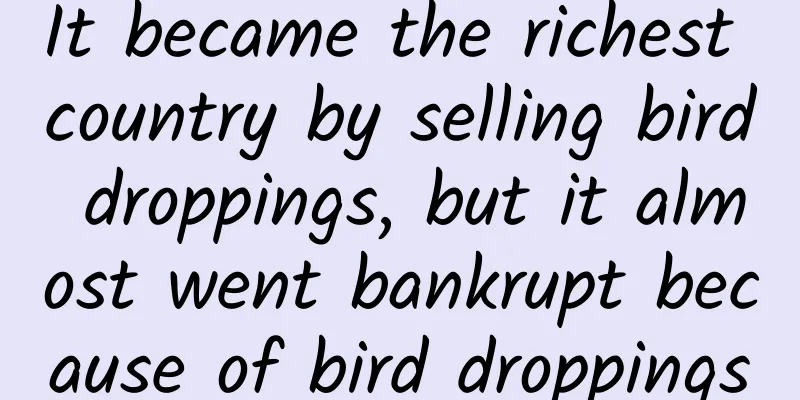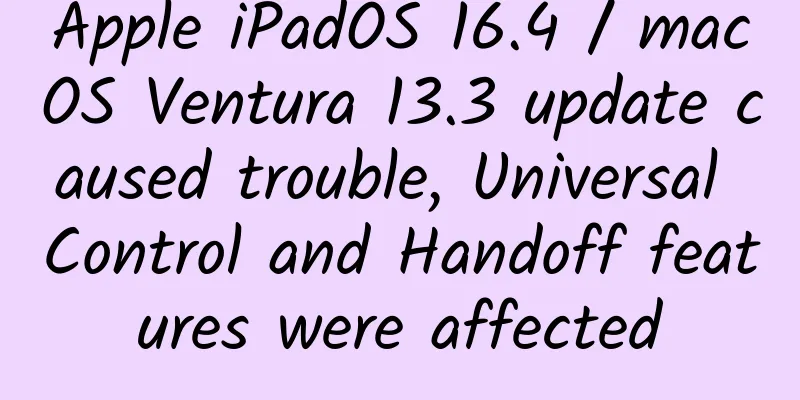It became the richest country by selling bird droppings, but it almost went bankrupt because of bird droppings

|
In 1856, the United States Congress passed the Guano Island Act. This law with a very interesting name stipulates that all islands with guano resources discovered, purchased or transferred by American citizens in the Pacific belong to the United States; the discoverer of the island has exclusive rights to the guano resources, but can only supply them to American citizens for use. A separate law for guano? Not to mention, based on this law, the United States occupied 73 islands in the Pacific and Caribbean at the end of the 19th century, and it has not yet been invalidated. Not only the United States, but another country even prospered because of guano and declined because of guano. 01 Bird droppings? It doesn't count if it lands on your clothes. ✦ To modern people, it may seem a bit ridiculous to legislate specifically for guano, but in fact, guano was once an important resource. In 1855, before the Guano Island Act was implemented, the United States imported 176,000 tons of guano in just one year. However, the bird droppings here cannot be completely equated with unknown objects that hit your head when walking on the road (such as the famous "Angel Road" of a certain university in Tieshizifen). It is a mixture of fine particles formed by the accumulation and drying of the excrement of seabirds and other animals over the years, rich in nitrogen, phosphorus and other elements. South American cormorants (Leucocarbo bougainvillii), a major producer of guano fertilizer | Francesco Veronesoi / wikimedia Guanine, one of the bases that make up RNA and DNA, should be strictly called "guano purine". Its English name guanine comes from guano, because it is isolated from sea guano from South America. The greatest value of guano is that it can be processed into high-quality agricultural fertilizer. For European and American farmers in the 19th century, over-cultivated and depleted land needed this resource to increase crop yields. After discovering the important role of phosphorus in plant cell growth, fruit and seed development, guano as a natural phosphate resource has attracted much attention. In the 1840s, guano had become an important commodity on the international market. Asimov, a famous science fiction writer, once likened phosphorus to the "bottleneck of life": "We can replace coal with nuclear energy, wood with plastic, and meat with yeast, but there is no substitute for phosphorus. The biomass on Earth will be limited by the total amount of phosphorus." | Acatenazzi / Wikipedia Guano resources are most abundant along the Pacific coast of South America and the South Pacific islands. The monsoon drives the flow of seawater, causing nutrients in the lower layer to rise, attracting fish to gather and attracting a large number of seabirds to build nests on the rock walls. The dry and hot weather makes it difficult for their feces to decompose, and they accumulate into a unique "scenery". The guano piles in Peru's Chincha Islands were once more than 40 meters high. Peru once had a monopoly on the guano market, but with the over-exploitation of guano resources, Peru not only suffered environmental damage, but also fell into a debt crisis. After the guano resources were exhausted, Peru began to export saltpeter and fish meal, which can be processed into fertilizers, to developed countries, at the cost of overdrawing its own ecological environment. 02 Bird shit ✦ Peru is not the only country that has suffered from extensive resource exports. Nauru's rise and fall depends on bird droppings. Nauru is a coral reef island located in the central South Pacific. It is the smallest independent republic in the world and the third smallest country, only slightly larger than the Vatican and Monaco. The land area is only 21.1 square kilometers, which is equivalent to one-third of the total area of Huilongguan and Tiantongyuan in Beijing. In 1888, Nauru became a colony of the German Empire. This small island seemed to have only coconuts and was not of much value in the eyes of Western powers; but a door stop changed its fate. Satellite image of a very small Nauru | ARM / Wikimedia Commons In 1899, a man named Albert Ellisz found an unremarkable "Nauru fossil wood" doorstop. Ellis was an executive of the Pacific Islands Company, specializing in phosphate mines. After testing the ingredients, he found that it was a high-quality phosphate, which was the result of long-term deposition and decomposition of guano mentioned above. Moreover, at that time, 80% of Nauru was covered with this "stone" - the fate of this small island nation changed from then on. Subsequently, the Pacific Islands Company was renamed the Pacific Phosphate Company, and reached a mining agreement with Germany in 1905. After the First World War, Britain, Australia and New Zealand seized Nauru's "guano" resources and established the British Phosphate Commission. In the 1920s, Nauru exported about 200,000 tons of phosphate each year, which was sold to farmers in these three countries at a price lower than the world average. In 1942, Nauru was invaded by Japan and phosphate mining was suspended for a time; but after the Second World War, Nauru was again under the rule of the three countries in the form of a "trust territory". Transport ships traveling to and from Nauru | あばさー/Wikimedia Commons In 1968, Nauru became independent, and the profits from the sale of phosphate mines allowed it to quickly enter a high-income, high-welfare model. From the late 1960s to the early 1970s, the Nauruan government boasted that its per capita income was the highest among all sovereign states. In the mid-1970s, the per capita GDP here was as high as 50,000 US dollars, and the atmosphere of pleasure once permeated the country - although the road on the island is less than 20 kilometers long, Nauruans still enjoy buying sports cars; high-sugar and high-fat foods and large amounts of alcohol intake have caused the obesity rate of Nauruans to exceed 70%, and the proportion of people suffering from type 2 diabetes ranks first in the world. 03 Defeat is also bird shit ✦ However, long-term mining has caused irreversible damage to the environment of Nauru Island. According to statistics, since the beginning of the last century, Nauru has exported about 80 million tons of phosphate, at the cost of at least 80% of the original vegetation disappearing, the local unique pandanus species has dropped from 17 to 8 and is on the verge of extinction, and the surrounding seas have been polluted by phosphate runoff, resulting in the death of about 40% of marine life. 80% of the island's land is "like the surface of the moon". After phosphate mining, limestone cones more than ten meters high remain. These places are neither suitable for growing crops nor for human habitation. Rocks left over from phosphate mining | Lorrie Graham / Wikipedia When the phosphate mines were running out, the Nauru government even carried out a series of "confusing actions", which made the plummeting economy worse and almost bankrupted it. The Nauru government developed offshore banking in the 1990s and sold Nauru passports to people from other countries, making Nauru a "goddess" for tax evasion and money laundering, but these profits were lost in the financial crisis in the late 1990s. General Electric provided a loan of 236 million Australian dollars to the Nauru government, but because the Nauru government could not repay it, the international real estate project developed by Nauru in Australia was also taken back. The Nauru government has made a lot of investment projects. In addition to overseas hotels, airlines and other investments, it also invested 4 million Australian dollars in London to produce a musical with the theme of Leonardo da Vinci's love story, but the performance received too many negative reviews and did not make back the investment. Phosphate mines on Nauru | ばさー/Wikimedia Commons Today, Nauru continues to mine the remaining phosphates in the limestone cones, and is also exploring other possible economic sources, such as mining deep-sea manganese mines and hosting refugees detained by Australia in exchange for aid. But the damage to the environment is irreversible, and the original meaning of its name, "Pleasant Island", has become a bubble. Author: Yaohua Editor: pee pee shrimp This article comes from the Species Calendar, welcome to forward If you need to reprint, please contact [email protected] |
>>: This "smallest organ in the human body" cannot be ignored when injured!
Recommend
Is the customization cost of Puyang automatic printing mini program high? Puyang automatic printing applet customization cost and process
More and more businesses are paying attention to ...
The State Administration of Radio, Film and Television strictly controls OTT installation manufacturers, each with its own countermeasures to skirt the rules
Recently, the State Administration of Radio, Film...
Are you suffering from developer ALS?
The rapid development of software development tec...
Canada has ordered Bitcoin ATMs and plans to roll them out in early October
[September 10 news] Bitcoiniacs, a Bitcoin exchan...
The nine sons of a dragon don't look like dragons? I was torn when I knew the truth!
As the saying goes: The dragon has nine sons, eac...
Why does our brain go “blank” when it comes to important moments?
Audit expert: Yin Tielun Deputy Chief Physician, ...
Practical explanation | Don’t you know how to use Tik Tok feed flow to attract traffic in your live broadcast room?
In this year of fear, disaster, and magic, a sudd...
Behind Liu Jun’s resignation: Are contradictions in Lenovo’s internal development strategy beginning to emerge?
Recently, Lenovo Group announced a personnel adju...
Mercedes-Benz EQC will be released in September, further information revealed
Recently, foreign media revealed that the pure el...
Drones are still a niche toy industry or may usher in a blue ocean era
There is a question on Zhihu, an online Q&A c...
As interesting as the short track speed skating competition is Wang Meng's commentary! Do you really know short track speed skating?
In the short track speed skating mixed team 2000m...
Which ocean satellites has my country independently developed?
my country has always attached great importance t...
Himalaya product operation analysis
In my childhood memory, there was always a radio ...
How to enter the R&D department of BAT?
[[145327]] I received offers from BAT and NetEase...
What are Tencent Video Ads? Introduction to the process of placing Tencent Video information stream ads!
What are Tencent Video Ads? Tencent Video is the ...




![The blockchain game "Eden" makes money by moving bricks. If you have time, you can manually move bricks by yourself [Installation tutorial + gameplay tutorial]](/upload/images/67cc01b551464.webp)




